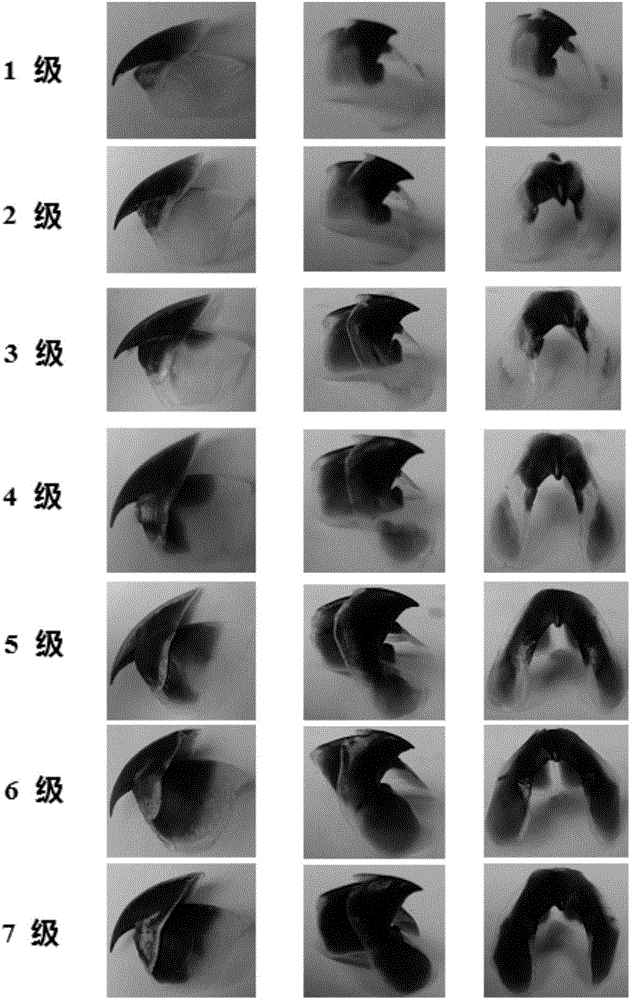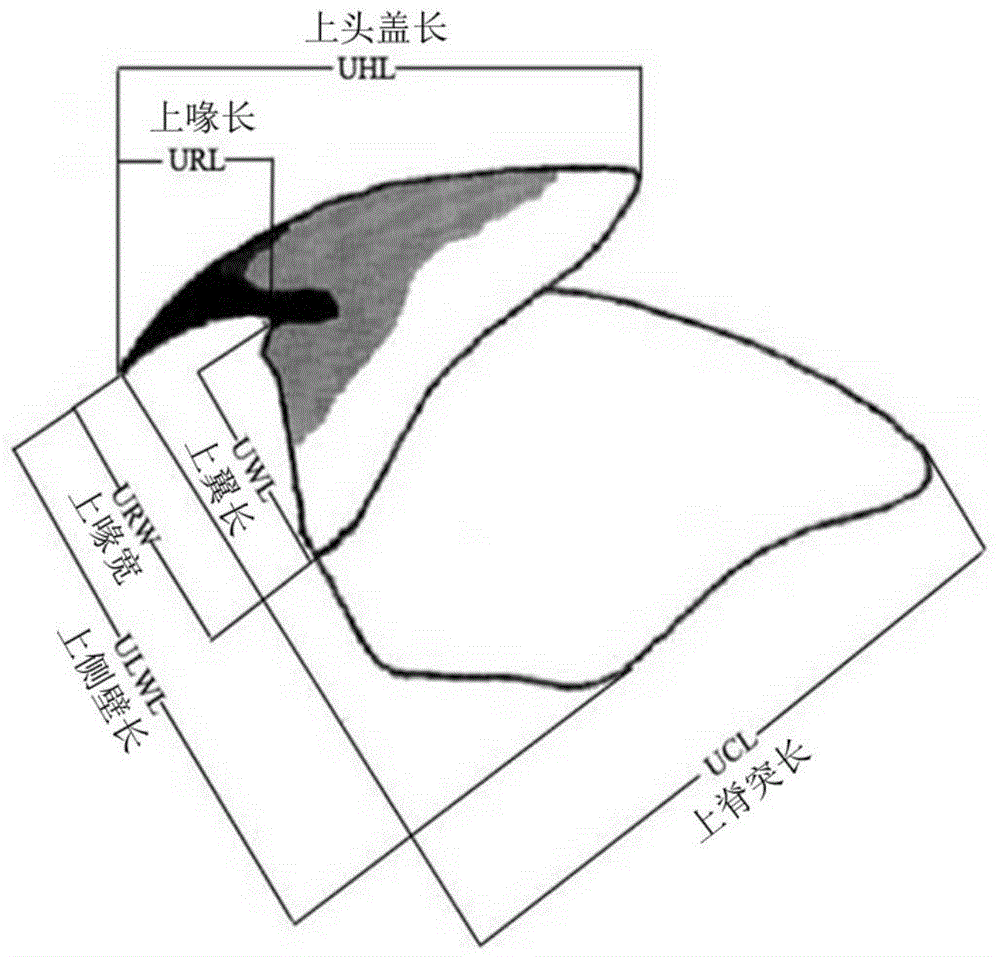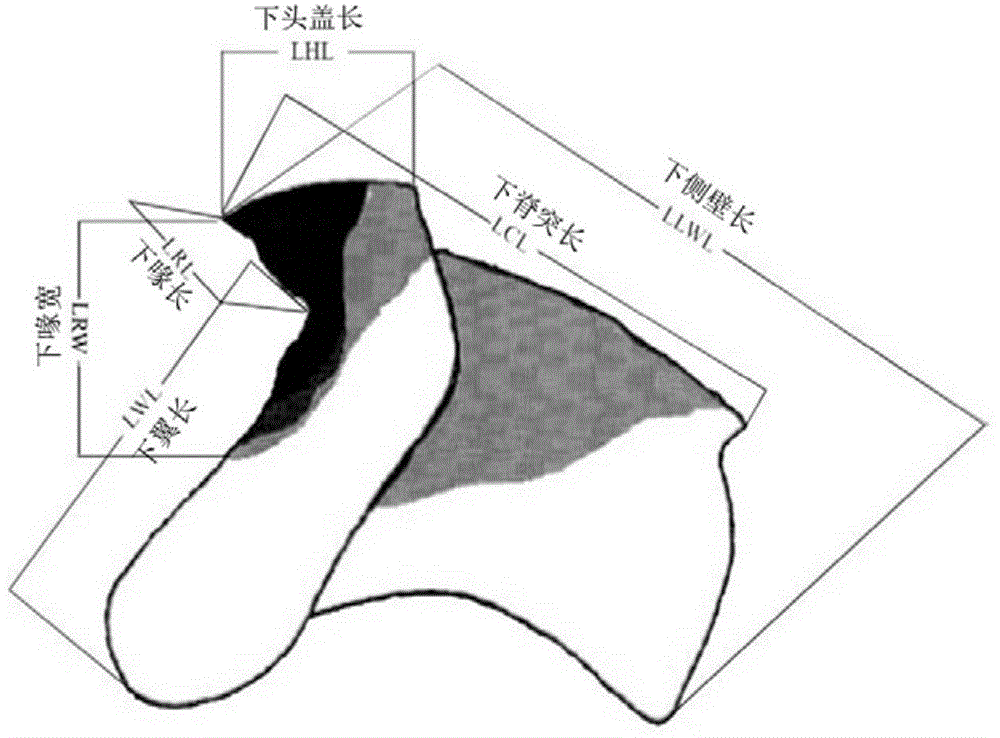Method for studying growth of cephalopods through classification of beak pigmentation
A technology for pigmentation and horny jaws, applied in the field of cephalopod research, can solve the problems that the classification of grades has not been extended to a larger genus or family, the grade of horny jaw pigments has not been established, and a unified division rule has not been formed.
- Summary
- Abstract
- Description
- Claims
- Application Information
AI Technical Summary
Problems solved by technology
Method used
Image
Examples
Embodiment 2
[0087] Example 2. (Case 1) Comparison of two different methods for judging pigmentation grades
[0088] Use the new division method to compare with the original division method. The specific standards of the original division method are as follows: Figure 4 Shown:
[0089] Table 2 Classification criteria for horny jaw pigmentation
[0090]
[0091] After comparing with the original determination standard, it is found that the standard of the present invention (Example 1) has better discrimination. The specific instructions are as follows:
[0092] 1. When the previous measurement standards divided the samples, 0-7 levels were set. Such a setting is a bit cumbersome, and it is not conducive to our judgment. Therefore, it is summarized and simplified in the classification of this application. It is set to 7 levels in total, so that it can be better distinguished according to the characteristics of horny jaw pigmentation. ;
[0093] 2. The description and definition of e...
Embodiment 3
[0102] Example 3. (Case 2) Relationship between North Pacific squid horny jaw pigmentation grade and growth
[0103] A sample of 171 squid (69 females and 102 males) samples from Case 1 was selected. The sample collection sea area is 38°36′N~43°08′N, 150°25′E~166°56′E. After thawing in the laboratory, the carcass length and body weight of soft fish were measured, and the sex and gonad maturity were identified. Carcass length was measured with a tape measure, accurate to 1mm. Body weight was weighed with an electronic balance, accurate to 0.1g. Gonadal maturity is divided into five stages: I, II, III, IV, and V. After 12 measurements of the extracted horny palate, the pigment grade is judged according to the above new criteria.
[0104] It was found that no individuals with horny jaw pigment grades 0, 6, and 7 were found in any of the samples. In female individuals, the proportion of grade 2 pigmentation was the highest ( Figure 5 , 6 , 7), the proportions of grade 2 pi...
PUM
 Login to View More
Login to View More Abstract
Description
Claims
Application Information
 Login to View More
Login to View More - R&D
- Intellectual Property
- Life Sciences
- Materials
- Tech Scout
- Unparalleled Data Quality
- Higher Quality Content
- 60% Fewer Hallucinations
Browse by: Latest US Patents, China's latest patents, Technical Efficacy Thesaurus, Application Domain, Technology Topic, Popular Technical Reports.
© 2025 PatSnap. All rights reserved.Legal|Privacy policy|Modern Slavery Act Transparency Statement|Sitemap|About US| Contact US: help@patsnap.com



